Difference between revisions of "Smooth leather"
| Line 72: | Line 72: | ||
<p align=center> | <p align=center> | ||
| − | <flashow>//www.youtube.com/v/ | + | <flashow>//www.youtube.com/v/DFtRH_aLGL0&fs=1&color1=0x660000&color2=0x550000&border=1|width=500|height=281,25</flashow> |
</p> | </p> | ||
<p align=center> | <p align=center> | ||
Revision as of 18:25, 13 June 2019
The word smooth is used to describe all types of leather, where the visible side is the grain side, regardless of the strength of the natural grain of the animal's skin.
Calfskins have a very fine grain and crocodiles a very strong grain structure. The top is always a "smooth leather". Embossed or coated split leather is also referred to as smooth leather because it looks like it is. But, actually, it's not because the scar side is not processed to the outside.
Calfskin has a much finer grain structure than crocodile leather.
Smooth leather is available in many variations: fine grained, strong grained or gloss or dull.
Smooth leather can be surface-coloured (pigmented) or porous (aniline leather) and its properties vary depending on the thickness of pigmentation on the surface. Aniline leather feels more beautiful, but fades quicker and is very stain-sensitive. Surface-dyed leathers are significantly less sensitive to stains and fading, but they do not feel so soft and warm.
Picture 1: A water drop on a pigmented smooth leather. Due to the coating, the drop does not penetrate the surface.
Picture 2: On aniline leather, the water drop sinks into the leather and darkens it.
Leather, where the hair is still present, is called fur.
The other side of smooth leather is leather with velvet like surfaces: split leather (suede) and the smooth sanded grain side, called nubuck.
Structure of the leather colouring and finish. Without finish = aniline leather.
Video about different types of leather.
Additional information









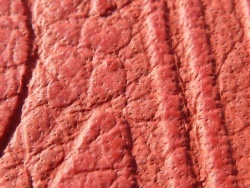
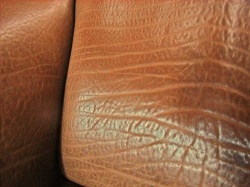
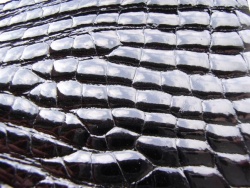
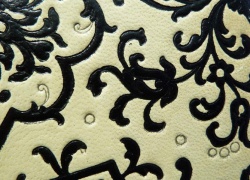
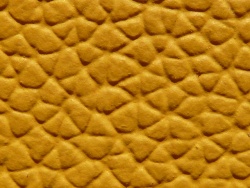
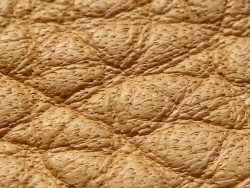
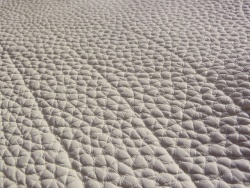
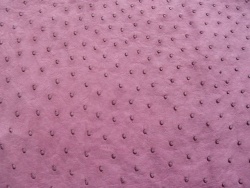






 a kotori web solution
a kotori web solution